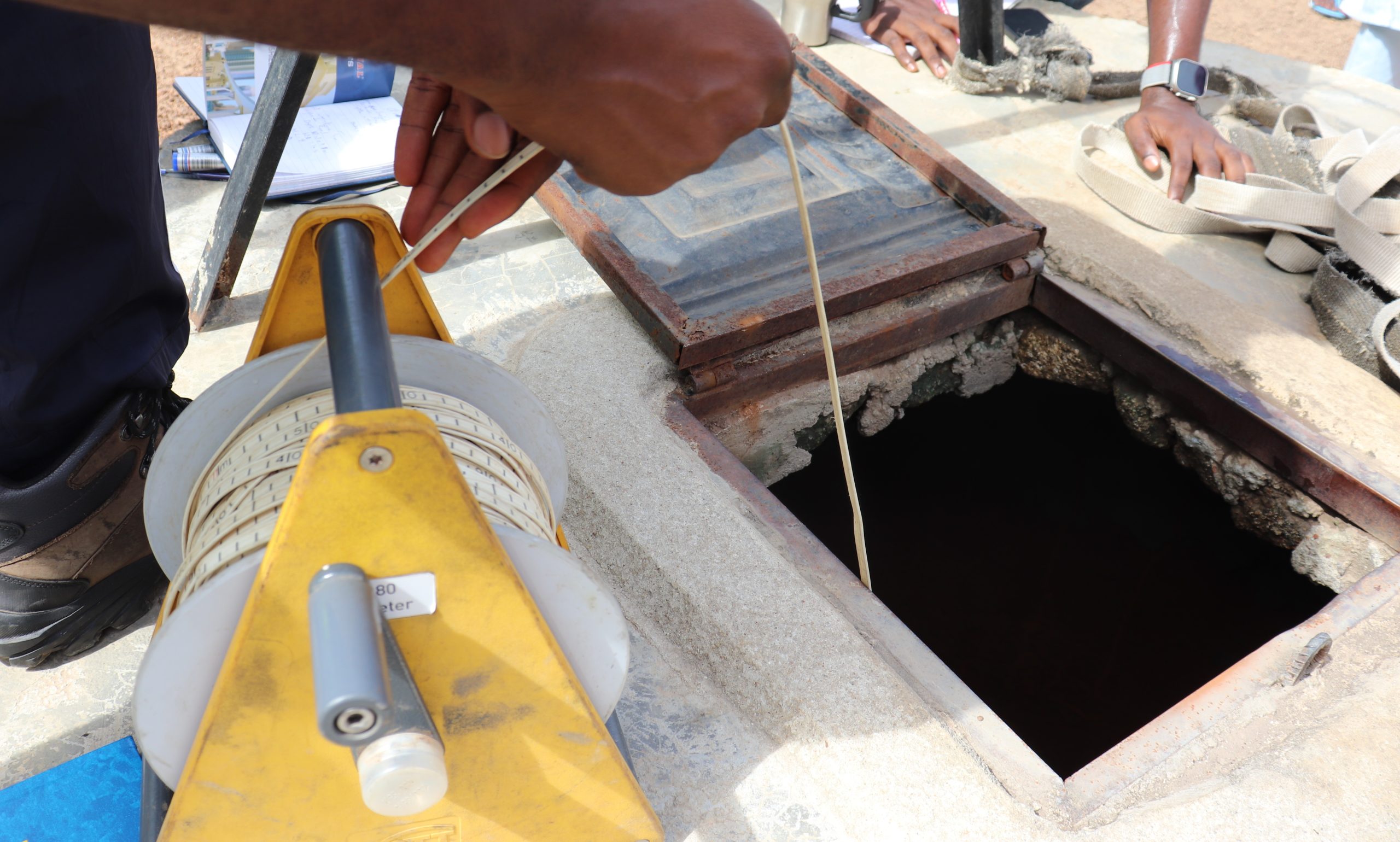The government of Sierra Leone has launched a groundwater assessment mission in Tankoro Chiefdom, Kono District to understand the rapidly declining water levels and chart a path toward long-term water security for the whole district.
The exercise championed by the National Water Resources Management Agency (NWRMA) brings together experts from a host of government MDAs, local authorities, civil society organisations, and local communities, with support from UNICEF Sierra Leone. The assessment comes in response to an alarming drop in groundwater levels, which threaten access to safe water for drinking, sanitation, and livelihoods. These threats lead to further health, socioeconomic, and security issues.
Field teams will analyze groundwater resources over the next month to identify sustainable solutions for communities, agriculture, and future generations. They will conduct detailed evaluations of water points across Kono District, combining field data with advanced analysis to map current groundwater conditions. Findings will inform strategies to mitigate water scarcity, enhance climate resilience, and prioritize investments in sustainable infrastructure.
Chief Komba Aruna Hindo, Town Chief of Bayama Jannoh, said the mere sight of people finding ways to understand what happened to wells drying up is a huge relief. He said for some time now, the few functional wells cannot cater to the water needs of the villagers, and this has caused an uncomfortable shift in the lives of his people. “Some people have to walk seven miles to Kpaya village to get drinking water, and this is difficult especially on children. Diarrhea and other waterborne diseases ravage our village, and our hospital cannot keep up with the health demands” . Chief Hindo said.
Ing. Ken Tommy, the Assistant Director of Planning, Research and Operations at NWRMA, and Team Lead for the Kono Groundwater Assessment Mission, says the Mission is carefully chosen from the Ministry of Environment, Environment Protection Agency, Ministry of Lands and Country Planning, Ministry of Agriculture and Food Security, Ministry of Health, local councils and civil society organisations to ensure that every aspect of the people’s relationship with water is captured. He further said the mission will focus on collecting and analyzing samples from community water points to understand their chemical, physical and biological properties.
Deputy Mayor of New Sembehun Koidu City, Mr. Sheku Kamara, while welcoming the team, said the whole district suffers from the effects of decreased water levels, and some very remote villages now solely rely on a shrinking stream for their water needs. He said as wells dry up and streams shrink, people’s everyday lives are thrown into confusion, which is quite a concern for the local councils. “Water scarcity poses an urgent threat to our people’s health, food security, and economic stability. This assessment is a vital step toward empowering our communities with data-driven solutions. Together, we are building resilience for generations to come.” Mr. Kamara committed the council’s total support to the assessment, as he believes it adds value to local council operations.
The month-long project will engage hydrogeologists, environmental experts, engineers and community representatives to ensure localized and equitable outcomes. Results will guide policy reforms, infrastructure planning, and community-led water management practices. This initiative reflects the power of partnership in tackling complex environmental challenges.

